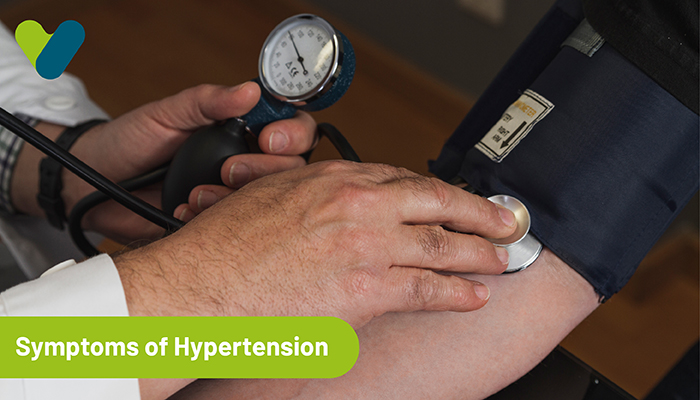These days, hearing the phrase ‘high blood pressure’ has become quite common. But what exactly does this phrase mean when it comes to your physiological health? Essentially, high blood pressure, a common condition that affects your body’s arteries, is also known as hypertension. Thus, if anyone mentions that they have high blood pressure, what they mean is that the force of blood pushing against the walls of their arteries is too high. Thus, the heart has to work extra hard to pump blood throughout the body. Normally, blood pressure is measured in millimetres of mercury (mm Hg). While normally an individual’s blood pressure reads at less than 120/80 mm Hg, a person who has hypertension has blood pressure that reads at 130/80 Hg or higher. As per the American College of Cardiology and the American Heart Association, blood pressure is categorised into four groups. They are as follows:
- Normal blood pressure, which is less than or up to 120/80 mm Hg
- Increased blood pressure, wherein the top numerical ranges from 120 to 129 mm Hg and the bottom numerical is below, not above, 80 mm Hg
- Stage 1 hypertension, wherein the top number ranges from 130 to 139 mm Hg or the bottom numerical is between 80 and 89 mm Hg
- Stage 2 hypertension, wherein the top number is at 140 mm Hg or higher and the bottom number is at 90 mm Hg or higher
What Are Some Common High Blood Pressure Symptoms?
Often, you will find that people who have high blood pressure experience almost no symptoms. This can be the case even when their blood pressure readings are dangerously high. You can even have high blood pressure for years without showing any symptoms. However, some of the more common high BP symptoms are as follows:- Headaches
- Shortness of breath
- Nosebleeds
- Confusion or fatigue
- Chest pain
- Blood in urine
- Irregular heartbeat
- Pounding in the neck, chest, or ears
- Dizziness
- Nervousness
- Sweating
- Difficulty sleeping
- Facial flushing
- Blood spots in the eyes.
When should you consult a doctor?
Again, if you or anyone you know is suffering from these symptoms, you should see a doctor right away. These symptoms could be an indication of a hypertensive issue that can lead to a stroke or a heart attack. They could also be a physical manifestation of some other underlying serious health condition. Usually, high blood pressure does not cause headaches or nosebleeds. However, these can occur during a hypertensive crisis when your blood pressure reaches beyond 180/120. In case your blood pressure is extremely high and you are experiencing these symptoms, you should try to rest for 5 minutes and re-check the measurements. If the blood pressure continues to stay elevated, it could constitute a medical emergency and you need to seek urgent medical care. Also, do keep in mind that high blood pressure does not always accompany by visible symptoms. Thus, to be on the safer side, you must get it measured regularly. As an adult, you should get your blood pressure measured during your routine physical check-ups. You can also do so during medical camps or drives. If you do suffer from high blood pressure, your doctor may advise you to monitor it often on your end. If so, usually at-home monitors work better than store-based machines. Your doctor will also ask you to make certain lifestyle changes for managing your blood pressure.How can you manage high blood pressure?
As a part of the treatment plan for high blood pressure, your doctor might prescribe certain medications. However, along with that, you might also need to make lifestyle changes to reduce or manage, your blood pressure levels. They are as follows:Manage your weight: Often, blood pressure increases with weight. If you are overweight, chances are you experience disrupted breathing, which further increases blood pressure. Thus, losing weight can help reduce your blood pressure significantly. Exercise regularly: Exercise is an excellent way to reduce your blood pressure. Trying to get 30 minutes of physical activity in a day can be of great help. Plus, exercise can also help prevent elevated blood pressure from turning into hypertension. Diet: Ideally, you should aim to eat a diet that consists of food like whole grains, fruits, vegetables, and low-fat dairy products. Including potassium can reduce the effects of salt on your blood pressure. Reduce salt: Another crucial change you need to make to reduce blood pressure is to cut down on salt intake. Doing so can improve your heart health. If you want to reduce salt consumption, avoid processed foods, read nutritional labels, and cook your own meals. Limit alcohol: Drinking large amounts of alcohol can increase your blood pressure and reduce the effectiveness of blood pressure medications. Thus, restrict yourself to one drink a day if you are a woman and two drinks if you are a man. Quit smoking: Smoking increases your blood pressure, and thus, quitting will help balance your levels. You will also reduce the chances of developing heart disease. Smoking can also be a contributing factor to various other serious illnesses. Sleep: Chronic lack of sleep can also contribute to an increase in blood pressure. You might suffer from insomnia, sleep apnoea, restless leg syndrome, or another issue that prevents you from getting a good night’s sleep. You could consult a medical professional or try relaxing techniques to ensure you sleep well. Stress management: Long-term chronic stress can contribute to high blood pressure levels. Research is being conducted in this area. You should try to determine what your stressors are and how you can manage your stress levels.

